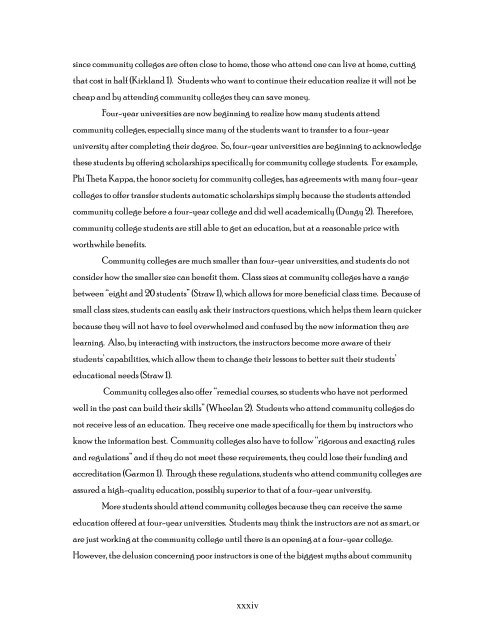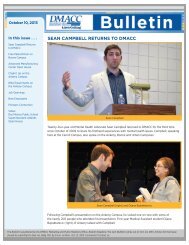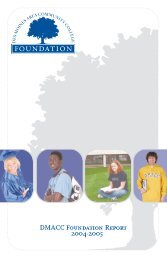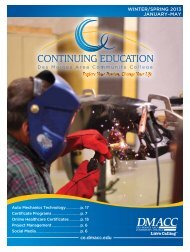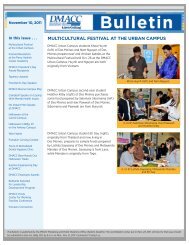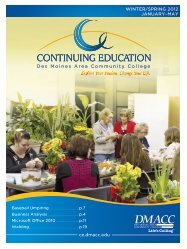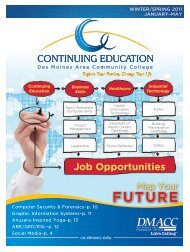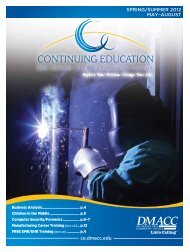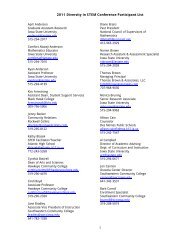The Skunk River Review - DMACC
The Skunk River Review - DMACC
The Skunk River Review - DMACC
You also want an ePaper? Increase the reach of your titles
YUMPU automatically turns print PDFs into web optimized ePapers that Google loves.
since community colleges are often close to home, those who attend one can live at home, cutting<br />
that cost in half (Kirkland 1). Students who want to continue their education realize it will not be<br />
cheap and by attending community colleges they can save money.<br />
Four-year universities are now beginning to realize how many students attend<br />
community colleges, especially since many of the students want to transfer to a four-year<br />
university after completing their degree. So, four-year universities are beginning to acknowledge<br />
these students by offering scholarships specifically for community college students. For example,<br />
Phi <strong>The</strong>ta Kappa, the honor society for community colleges, has agreements with many four-year<br />
colleges to offer transfer students automatic scholarships simply because the students attended<br />
community college before a four-year college and did well academically (Dungy 2). <strong>The</strong>refore,<br />
community college students are still able to get an education, but at a reasonable price with<br />
worthwhile benefits.<br />
Community colleges are much smaller than four-year universities, and students do not<br />
consider how the smaller size can benefit them. Class sizes at community colleges have a range<br />
between “eight and 20 students” (Straw 1), which allows for more beneficial class time. Because of<br />
small class sizes, students can easily ask their instructors questions, which helps them learn quicker<br />
because they will not have to feel overwhelmed and confused by the new information they are<br />
learning. Also, by interacting with instructors, the instructors become more aware of their<br />
students’ capabilities, which allow them to change their lessons to better suit their students’<br />
educational needs (Straw 1).<br />
Community colleges also offer “remedial courses, so students who have not performed<br />
well in the past can build their skills” (Wheelan 2). Students who attend community colleges do<br />
not receive less of an education. <strong>The</strong>y receive one made specifically for them by instructors who<br />
know the information best. Community colleges also have to follow “rigorous and exacting rules<br />
and regulations” and if they do not meet these requirements, they could lose their funding and<br />
accreditation (Garmon 1). Through these regulations, students who attend community colleges are<br />
assured a high-quality education, possibly superior to that of a four-year university.<br />
More students should attend community colleges because they can receive the same<br />
education offered at four-year universities. Students may think the instructors are not as smart, or<br />
are just working at the community college until there is an opening at a four-year college.<br />
However, the delusion concerning poor instructors is one of the biggest myths about community<br />
xxxiv


